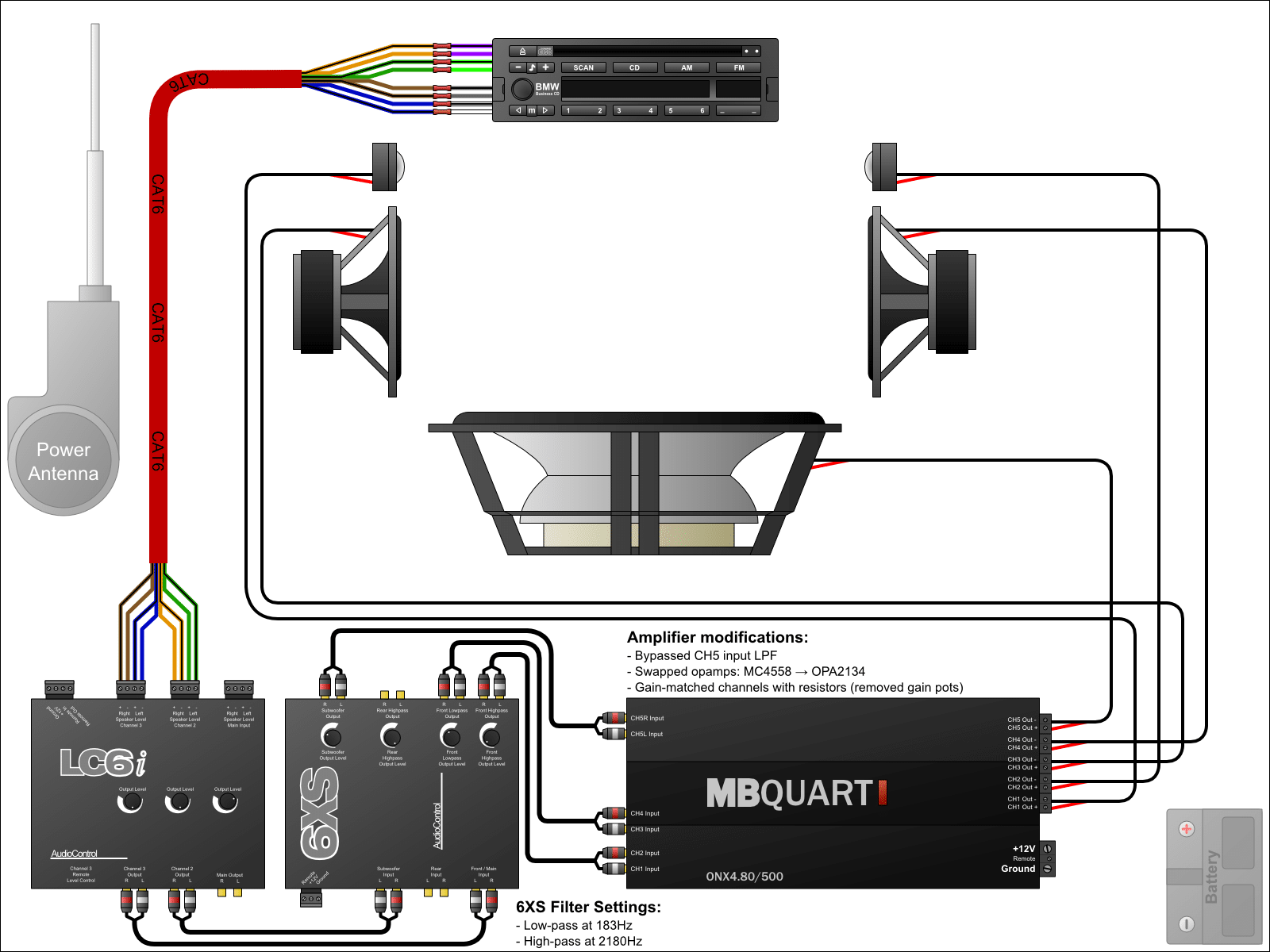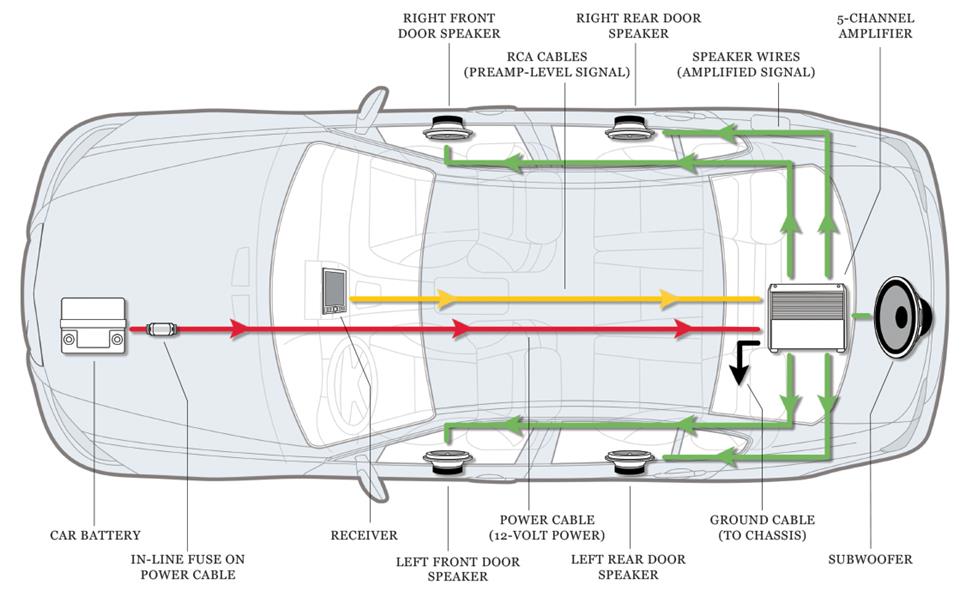Want to feel the rumble of a truly immersive soundscape? Adding a second subwoofer can elevate your home theater or listening room to a whole new level. This guide will delve into the intricacies of dual subwoofer installation, providing you with the knowledge to achieve a balanced, powerful bass response that single subwoofer setups simply can’t match.
Imagine experiencing the full impact of explosions in your favorite action movies or feeling the deep resonance of bass lines in your music collection. This is the promise of dual subwoofers – not just louder bass, but a smoother, more even distribution of low-frequency sound throughout your space. This detailed exploration of dual subwoofer setup will empower you to unlock this potential.
While the concept of adding more subwoofers might seem straightforward, the process of properly integrating two subwoofers involves several key considerations. From understanding the principles of acoustics to selecting the right equipment and fine-tuning the settings, each step contributes to the overall performance of your audio system. This comprehensive guide will address every aspect of the process, from wiring diagrams to practical tips for achieving optimal placement.
The evolution of home audio systems has seen a significant rise in the pursuit of realistic sound reproduction. While a single subwoofer can significantly enhance the low-frequency output, dual subwoofer setups address the inherent limitations of using just one. By strategically positioning and configuring two subwoofers, listeners can mitigate issues like room modes and uneven bass response, achieving a more accurate and engaging audio experience.
Common issues encountered with single subwoofer setups, such as “dead zones” or excessive bass in certain areas of the room, are often resolved by incorporating a second subwoofer. This allows for more precise control over the distribution of low-frequency sound waves, minimizing unwanted peaks and dips in the bass response. This guide will address these issues and provide practical solutions for optimizing your dual subwoofer configuration.
Integrating two subwoofers involves connecting them to your receiver or amplifier, typically using a Y-splitter cable from the subwoofer output. Alternatively, some receivers offer dual subwoofer outputs. Correctly setting the phase and gain controls is crucial for achieving a cohesive and impactful bass response. Calibration tools, often included with modern receivers, can assist in fine-tuning the system for optimal performance.
Benefits of dual subwoofers include smoother bass response, increased output capacity, and improved room coverage. For example, two smaller subwoofers can often outperform a single larger subwoofer in terms of even bass distribution.
Action Plan: 1. Acquire necessary equipment (subwoofers, cables, etc.). 2. Determine optimal subwoofer placement. 3. Connect subwoofers to your receiver or amplifier. 4. Calibrate using a sound level meter or automated system.
Advantages and Disadvantages of Dual Subwoofers
| Advantages | Disadvantages |
|---|---|
| Smoother bass response | Increased cost |
| Increased output capacity | More complex setup |
| Improved room coverage | Potential for phase cancellation if not set up correctly |
Best Practices: 1. Use identical subwoofers for consistent performance. 2. Experiment with placement to minimize room mode issues. 3. Use a subwoofer crawl to identify optimal positions. 4. Calibrate using a sound meter for precise adjustments. 5. Use high-quality cables for optimal signal transfer.
FAQ: 1. Do I need two identical subwoofers? Ideally, yes. 2. Can I use different sized subwoofers? It's not recommended. 3. What is phase cancellation? It occurs when sound waves interfere destructively, resulting in reduced bass output.
Tips and Tricks: Consider using acoustic treatment to further improve bass response. Experiment with different crossover settings. Consult online forums for specific advice related to your room and equipment.
Mastering the art of dual subwoofer installation can transform your audio experience, immersing you in a rich and powerful soundscape. By understanding the principles of acoustics, following best practices, and addressing potential challenges, you can unlock the full potential of your audio system. While the initial setup may require some effort, the rewards are well worth it. Take the time to carefully plan your installation, experiment with different configurations, and enjoy the enhanced audio performance that dual subwoofers provide. This enhanced bass response isn’t just about loudness; it’s about experiencing the full emotional impact of your music and movies, adding a depth and richness that transforms passive listening into an active engagement with your favorite entertainment.
How To Install Amplifier My Summer Car at Henry Sears blog - The Brass Coq
Wiring A Dual 4 Ohm Sub - The Brass Coq
Subs Setup In Car at Crystal Allen blog - The Brass Coq
Stereo Wiring Diagram Vxmodore - The Brass Coq
Diagram Of Wiring Subwoofers - The Brass Coq
Wiring 2 Subwoofers To Mono Amp - The Brass Coq
Diagram showing examples of dual voice coil subwoofer advantages - The Brass Coq
the wiring diagram for an audio system with speakers and subwoofers in it - The Brass Coq
How To Wire Dual Voice Coil Subs In Parallel - The Brass Coq
Dual 4 Ohm Voice Coil Config - The Brass Coq
Speaker Voice Coil Repair Kit at Shawn Rodgers blog - The Brass Coq
how to install 2 subwoofers - The Brass Coq
Car Subwoofer Wiring Guide - The Brass Coq











